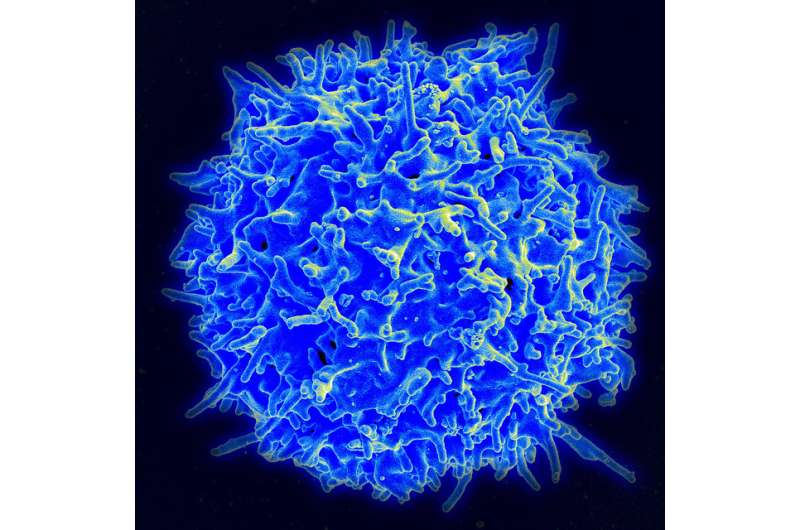T-cell tests unreliable in establishing previous COVID-19

Can T-cell tests be used to determine whether people have had COVID-19? Scientists at Uppsala University and Karolinska Institutet have jointly analyzed this issue under the aegis of the COMMUNITY study at Danderyd Hospital. Their study is published in PLOS ONE.
"We've seen that companies sell tests for the purpose of establishing whether a person has T cells that are specific to SARS-CoV-2. It's not so common for T-cell tests to be used in clinical diagnostics, so we decided to see if the data from the COMMUNITY study, where we have measured antibodies in a large cohort study in a longitudinal fashion, and also performed T cell studies at a follow-up time-point , to see if this study could give us information about how well these tests perform at an individual level," says Sara Mangsbo, a research scientist in immuno-oncology at Uppsala University.
By analyzing the T cells' responses to varying peptide compositions, the researchers were able to see that different peptide pools produced divergent responses, and that a risk of false-positive responses existed. In the scientists' view, this risk is due to the fact that the peptides can give rise to responses from memory T cells that originated in some way other than through a SARS-CoV-2 infection—from a common cold, for example.
When the scientists attempted to avoid using peptides that might give rise to these cross-reactive responses, there was an increase in the specificity of the test—that is, its ability to establish genuine negative responses—but its sensitivity (ability to detect a true positive response) simultaneously declined at the time of sampling and analysis, which was 4-5 months post COVID-19.
"Here, we used the COMMUNITY study, which participants joined early on in the pandemic, in April and May 2020, enabling us to follow these individuals over time throughout the pandemic. That gives us confidence that the antibodies, which are measured regularly, can give us information about whether the subjects have had COVID-19 or not," Mangsbo says.
"In the follow-up study, the participants with a relatively mild initial disease clearly didn't always have measurable SARS-CoV-2 specific T cells in blood. But among those with a disease that's initially more serious, there were more who had measurable SARS-CoV-2-specific T cells in blood over time. The correlation we found between the severity of the disease and a measurable, established memory response in the blood isn't entirely unexpected; but it's still important to establish, since the use of T-cell tests has been a matter of public discussion for numerous reasons," she continues.
"It's also important to say that the subjects' blood doesn't always contain the memory T cells after the disease is over. Still, cells in tissues—which aren't measurable by means of a blood-based test for T cells—may have a part to play in how ill people get during an infection," Thålin, specialist doctor and researcher responsible for the COMMUNITY study at Danderyd Hospital and Karolinska Institutet adds.
"T-cell tests will continue to have an important part to play in research and studies, but probably a smaller one in diagnostics and at individual level for SARS-CoV-2 in particular," says Charlotte Thålin.
Work to develop a specific SARS-CoV-2 peptide mix has been carried out in collaboration with Pierre Dönnes and SciCross AB. Peter Nilsson and Sophia Hober at KTH measured the antibodies over time.
More information: Sara M. Mangsbo et al, An evaluation of a FluoroSpot assay as a diagnostic tool to determine SARS-CoV-2 specific T cell responses, PLOS ONE (2021). DOI: 10.1371/journal.pone.0258041


















